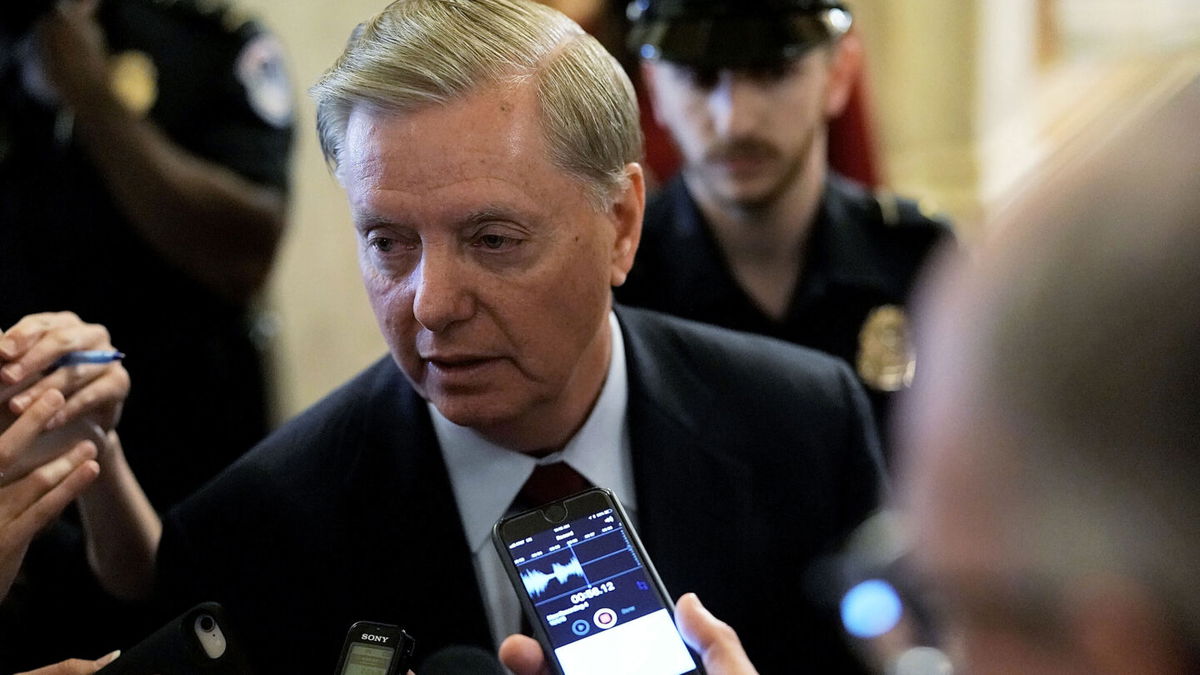Lindsey Graham tells Supreme Court that Fani Willis is in a ‘rush’ for his testimony

Sen. Lindsey Graham
By Tierney Sneed
Sen. Lindsey Graham, in a new brief filed with the Supreme Court on Friday, says there’s no rush necessary for his testimony to the Fulton County grand jury investigating 2020 election subversion plots in Georgia, as the senator asks the justices to block a subpoena while his legal challenge to it plays out.
“There is no need to sacrifice this appeal and the immunities it presents for the sake of the District Attorneys’ now-preferred timeline,” Graham wrote, referring to Fulton County District Attorney Fani Willis, who is spearheading the special purpose grand jury investigation into efforts to reverse former President Donald Trump’s Georgia defeat.
With Graham’s submission of his latest brief to the justices, the dispute is now ripe for the Supreme Court to rule on it at any time.
Justice Clarence Thomas — who oversees emergency matters coming from the southeastern part of the country — previously put a temporary hold on enforcement of the subpoena.
Graham claims the Constitution’s Speech or Debate Clause — which shields legislators from some law enforcement actions in situations connected to their legislative duties — precludes his compliance with the subpoena. He also argues the subpoena should be quashed under a legal concept known as sovereign immunity.
“An extendable end date for an investigation provides no basis for subjecting a sitting U.S. Senator to irreparable harm in violation of two of the Constitution’s structural safeguards,” Graham wrote, as he described the delays the litigation would cause to Willis’ probe as “inconveniences.”
His brief accused Willis of wanting “to rush her interrogation,” which is currently set for November 17, before the appeals court has a chance to resolve the case on the merits.
Willis wants to question Graham on phone calls he had with Georgia election officials, as well as on subjects related to the 2020 election.
Lower courts ruled that questions about some aspects of his phone calls were out of bounds under the Constitution, but that the Speech or Debate clause did not prevent investigators from interrogating him on other topics Willis is interested in investigating.
The-CNN-Wire
™ & © 2022 Cable News Network, Inc., a Warner Bros. Discovery Company. All rights reserved.